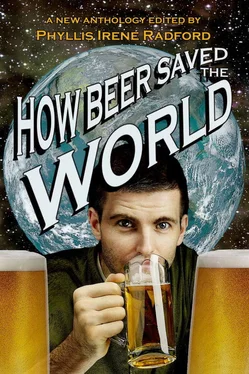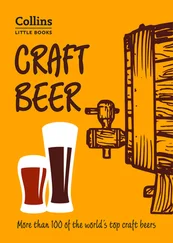The valley of Durn, as I was saying, had been oppressed for decades by a tyrant who styled himself Lord Augustus Stephenson of the Brown Feather; (15) a paranoid bombast who kept a small army of henchmen stabled like cattle in his heavily fortified manse upon a steep rise at the valley’s southern end. This pretense of a castle squatted like a guardhouse between the village and a great waterfall that marked the valley’s only navigable passage to the outside world. No one came or went from Durn without Lord Stephenson’s leave, which is to say that almost no one ever came or went from Durn at all—except as prisoners or exiles. (16)
This self-styled ‘Lord’ was universally referred to by the valley’s unfortunate inhabitants as Mad Gus—never within his hearing, of course—for few in Durn had not suffered frequent outrages at his unpredictable whim. Mad Gus saw punishment as a preventative measure. ‘Spare the rod and spoil the child’ was not just his favorite Bible verse; it was the only one he knew. He liked it so well that he had it carved upon his coat of arms. (17) A week did not go by without someone’s wife dragged from the house and sold to slavers in remuneration of some petty debt to Stephenson, real or imagined—or someone’s home or barn torched in the middle of the night as warning against whatever wrong Mad Gus imagined was being contemplated in their hearts—or someone’s child abducted and caged up at the castle until he or she grew old enough to serve Mad Gus as yet another henchman or kitchen drudge—or someone’s husband beaten just for entertainment in the fields or village square by the tyrant’s ‘peacekeepers.’ Neither loitering, truancy, gossip, nor public play or celebration were allowed in Durn. Only labor was tolerated there, and Mad Gus took all of whatever anyone’s labor produced beyond the little required by them to starve through another winter without actually dying. (18)
RH: What a grim situation… Why did these people not revolt? It doesn’t sound as if they had much to lose.
GD: It was the beer, Herr Halifax.
RH: The beer? I… don’t quite see—
GD: The one exception to Mad Gus’s insane selfishness and cruelty was the beer . Or so it seems, at first glance, ja ?
RH: Ah. Right… First glance at… what, exactly?
GD: Understand, Herr Halifax, the people of Durn were allowed one male goat or cow and one female. Any kids or calves produced were confiscated just as soon as they were weaned, and taken off to grace the royal table—as was any milk not used for making cheese. Mad Gus’s subjects were encouraged to make all the cheese they wished, but not allowed to eat a bite of it. Off to the castle with that too, straight from the molds. Folk kept just half a bushel of whatever produce they might eke out of the rocky soil. All the rest was seized as ‘tax’ upon harvest and sent up to the tyrant’s bulging granaries and cellars against some rainy day. His rainy day, of course, not theirs. BUT! Strangely enough, folk were allowed to keep all the hops and grain that they might wish—just as long as it was brewed straight into beer. You would expect that once the work of brewing had been done, all that beer would vanish up into the castle with the rest, ja ? But to everyone’s carefully suppressed astonishment, no! Mad Gus allowed the folk of Durn to keep their beer as well. As much as they could make and store and drink.
RH: Why?
GD: Mad Gus claimed to hate the stuff. With a passion—as one might expect of such a tyrant, ja ? What other kind of man could hate such divine elixir? One might even surmise that this deviant abhorrence was the very cause of his degraded character. But the truth is otherwise, I think. Mad Gus was likely not so mad as that.
RH: But still… why then? It makes no sense.
GD: Does it not?
RH: Why are you smiling that way?
GD: All in good time, young man. First, you must know something about how beer came to be, for, as I said, it came to be right there in Durn. No one else had ever tried—or thought of trying—to make beer then. (19) Why would they have? Beer begins as pretty noxious stuff prior to the miracle of fermentation. Its first manufacture in Durn was just an accident—the result, in fact, of Mad Gus’s own relentless greed.
It is said that some poor farmer, whose name is sadly lost to us, had tried to cheat Mad Gus out of his excessive ‘tax’ by hiding a few scant ingredients for bread and herbal soup within his little hovel, thinking that the tyrant’s henchmen would not notice such a small omission. But Mad Gus had trained his men quite… passionately , let us say, and they were not deceived. So, when the poor man saw them ride into his yard, he poured all his illicit grain and herbs and yeast into the only hiding place at his disposal, an extremely large urn of water, unfortunately still half full, then jammed a rag into its mouth in hopes that his assailants would not look inside. They did, of course. That urn was likely the only object in the hovel worth examining. When they saw the soupy mess he’d made of his ill-gotten grain, they shoved the rag back into place and left the mess to rot. The man himself was left to rot as well, inside Mad Gus’s dungeon.
Somehow, though, the hapless man survived Mad Gus’s hospitality, and three months later, was released—which was not so great a favor as it may seem at first. Winter was well arrived by then. The valley was all hunkered down to starve until the spring, and the paroled farmer, already weak and hungry from his ordeal, had no one to assist him. Amidst the snowdrifts that had blown into his open hovel since they’d taken him away, he found nothing but the water urn they’d left, still containing all the food he had possessed. Without much hope, I imagine, he removed the rag and peered inside. Have you ever seen the afterbirth of fresh beer, Herr Halifax? (20)
RH: I fear I haven’t.
GD: It does not smell too bad, and it gives off a certain heat in fermentation, so it was not likely frozen, which was doubtless fortunate, but it is otherwise a most unappealing sight. Still, a man starving in winter might try anything. It seems he drank some of the fizzy, clotted broth into which all that grain and yeast had composted in his absence, likely hoping it might still provide at least a trace more nutritional value than could be derived from the frozen clay of his packed-earth floor, or the weathered wooden lintel of his doorway. (21) It must not have tasted too badly, for it seems he drank enough of it to experience a strange and wonderful euphoria.
RH: You’re not telling me that no one had ever been drunk before this, are you?
GD: Not in Durn, they hadn’t. And no one ever anywhere, not from beer. (22)
RH: Good heavens.
GD: Indeed. The urn was apparently large enough to provide a bit more of the miraculous substance to share with neighbors, who, in exchange for this transcendent experience, gave him enough food to delay his death from excessive starvation for several more weeks.
RH: He still died—after all that?!
GD: Alas. It seems he did. Martyred to bring beer into the world. I am told that one could find shrines dedicated to him throughout Schkerrinwald for centuries afterward.
RH: I’m sorry, Herr Dourtmundschtradel, but I feel compelled to ask: does this story of yours get any happier?
GD: Has beer ever made you … happy, Herr Halifax?
RH: Well… er… I suppose it… may have… Once or twice.
GD: Then you have your answer. This is the story of beer, young man, which has not just one, but many millions of happy endings. (23)
RH: I’m not sure that’s exactly what I—
GD: Returning to the point, however, they say that when Mad Gus was informed of the poor man’s struggle to survive on rotted grain in spoiled water, he laughed long and loud, then ordered one of his henchmen to bring him a small flask of the substance to examine. It is further said that he found the sample so revolting, he killed the man who’d brought it to him. (24)
Читать дальше











